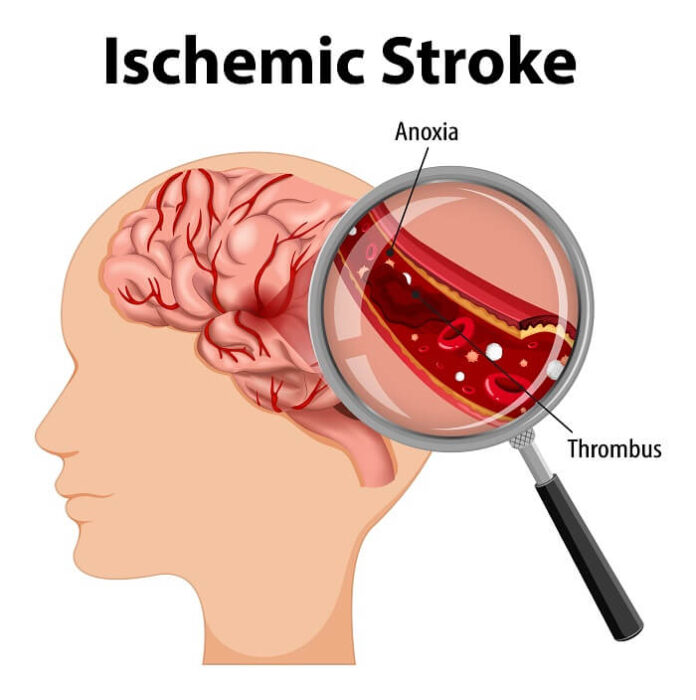Sixteen Indian hospitals, led by AIIMS Delhi, have united to test what is being hailed as the first device specifically designed to treat acute ischemic stroke in Indian patients—a condition that is a leading cause of death and disability in India.
The GRASSROOT (Gravity Stent-Retriever System for Reperfusion of Large Vessel Occlusion Stroke) trial will evaluate a new stent-retriever developed by U.S.-based Gravity Medical Technology, which specializes in stroke treatment technology. This next-generation device is uniquely designed to address the distinct characteristics of stroke clots in the Indian population.
Developed with insights from both Indian and international medical experts, the device aims to restore blood flow to the brain swiftly, safely, and effectively.
India experiences an estimated 1.7 million strokes annually, the highest worldwide, affecting both young and elderly patients.
A stroke, or “brain attack,” occurs when blood supply to part of the brain is interrupted (ischemic stroke) or when a blood vessel bursts (hemorrhagic stroke), potentially causing lasting brain damage, long-term disability, or death.
As reported by medicalbuyer, The GRASSROOT trial device is specifically designed for mechanical thrombectomy, a procedure to remove clots from blood vessels. Senior neurologists at AIIMS Delhi estimate that 375,000 patients could benefit each year from interventional stroke treatments.
Despite the proven effectiveness of mechanical thrombectomy since 2015, only about 4,500-5,000 Indian patients underwent this intervention in 2023 due to limited access and high costs.
“India has a significant unmet need in interventional stroke care, and we are eager to evaluate advanced, next-generation stent-retriever technology here,” said Dr. Shailesh Gaikwad, head of neuroimaging and interventional neuroradiology at AIIMS.
“Our goal is to deliver an innovative solution that enhances stroke outcomes and establishes new global standards in stroke care,” he added.
How the Device Works
A stent-retriever is a specialized device used in minimally invasive stroke surgery, known as mechanical thrombectomy. During the procedure, a catheter is guided through an artery, usually in the groin, to the clot. The stent-retriever is then inserted through the catheter to capture and remove the clot. This procedure is often recommended for moderate to severe strokes and for patients with a Modified Rankin Score (MRS) of 0 to 2, a six-point disability scale.
AIIMS experts noted significant differences in stroke causes, artery size, clot type, and age of stroke between populations. “Customized solutions are necessary for optimal patient care, and this next-generation stent-retriever was specifically developed with the South-East Asian population in mind,” an AIIMS neurologist said, adding that the device effectively removes all types of blood clots and performs better than existing devices.
In 2015, research confirmed the benefits of interventional stroke treatment, similar to the effectiveness seen with cardiac stenting in the 1990s. The development has transformed stroke from a largely untreatable condition to one where paralysis can often be reversed or significantly minimized.
However, in the nine years since this treatment has been shown to work, access in India remains limited due to the absence of a suitable device for Indian patients and high treatment costs.
The doctors aim to offer the device at a quarter of the current price, which is now over Rs 4 lakh.
‘A New Era for Stroke Care’
The GRASSROOT trial, which began with participation from Indian hospitals in August, follows initial testing in about 60 patients in Thailand and Pakistan since February this year. AIIMS Delhi was one of the first Indian hospitals to use the device, with the first patient discharged on August 25 after treatment.
“We believe the GRASSROOT trial will usher in a new era of stroke care in India and beyond,” said Dr. Deepti Vibha, a senior neurologist at AIIMS involved in the trial.
Participating hospitals include the Jawaharlal Institute of Postgraduate Medical Education & Research (JIPMER), Pondicherry, and Zydus Hospital, Ahmedabad, among others.
Beyond assessing device efficacy, the trial also seeks to deepen understanding of stroke patient characteristics and treatment approaches in India compared to Western countries.
Left untreated, strokes can lead to life-long disability, death, and significant socio-economic impact on patients and their families. The economic cost of stroke to India exceeds Rs 4 lakh crore in direct and indirect expenses.























